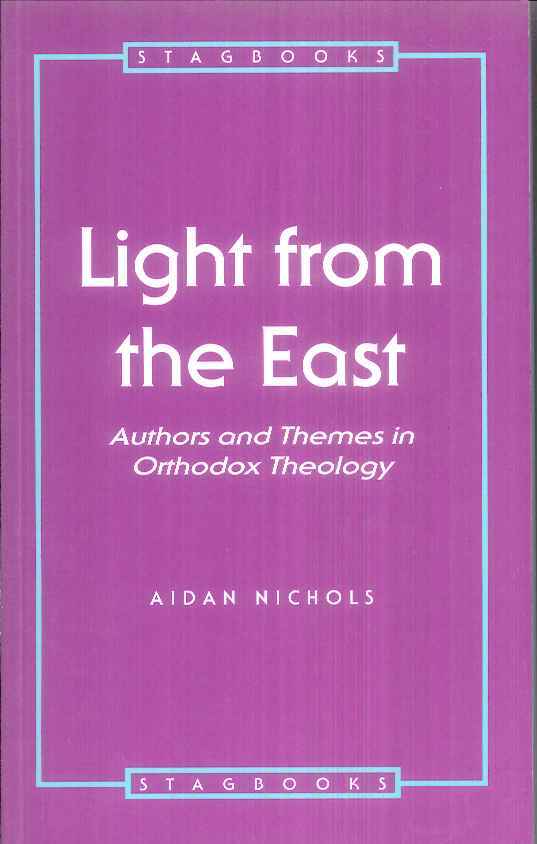Light From the East
By Aidan Nichols
Continuum Books (1995)
ISBN: 072205081X
Price: £34.99 (Amazon UK)
By Aidan Nichols
Continuum Books (1995)
ISBN: 072205081X
Price: £34.99 (Amazon UK)
Review By Deacon Daniel Malyon (British Orthodox Church)
There are a number of books which track the development of Eastern Orthodox thought in the 20th Century, though usually these are focused on a singular concept or theme. In Light from the East, Aidan Nichols has removed this thematic element to allow for a broad overview of the major players in the 20th Century Orthodox Theological world and allowed for these themes and ideas to be explored in a wide-ranging collection of thinkers.
The text explores the key works and ideas from well-known
modern Orthodox Theologians such as Vladimir Lossky, Sergei Bulgakov, Nicholas
Afanasiev, Georges Florovsky amongst others. In each of these sections there is
a short biographical passage, explanation of the context in which the thinker emerged,
coverage of ideas and an evaluation of the key development with which the
thinker is most associated. This makes the text somewhat unique as it is based organised
in a fashion which emphasises the specific person and not their idea. This also
allows for a deeper exploration of the development of these ideas throughout
the life of the writer as opposed to simply addressing it is a simplistic form.
The book would be of some use for someone (such as myself) with
some grasp of the seminal works of the thinkers covered but who wishes to get
to grips with the development of Eastern Orthodox thought in the past century
as a whole. This is because of the structure above all, which I have already
praised for its focus on the context as opposed to simply the ideas. In this
way the book demonstrates a positive growth in the level of ecumenical research
being carried out by thinkers in the west and makes the text praiseworthy for
that significant step in both an academic and ecclesiological sense.
In the same way, this academic structuring of the book is a
weakness, as the evaluation section seems to depend on decontextualizing the
idea and dissecting it through means of a western approach. When looking at
such ideas as the radical apophatic theology of Lossky, this approach seems to
undermine the very essence of that apophatic thought by tackling it through
means of analytic thought. In this way, the criticisms levelled by the author
become irrelevant to an Orthodox reader who simply wishes to look into the
developments from within his/her own tradition.
Overall, I would recommend this text to anyone who wishes to
get to grips with the various and somewhat divergent schools of thought of
Eastern Orthodox Theology in the 20th Century. It gives a great
overview of the various thinkers involved as well as the way in which their
ideas were formed, allowing for a broader explanation of these developments
than many other texts would allow.


No comments:
Post a Comment